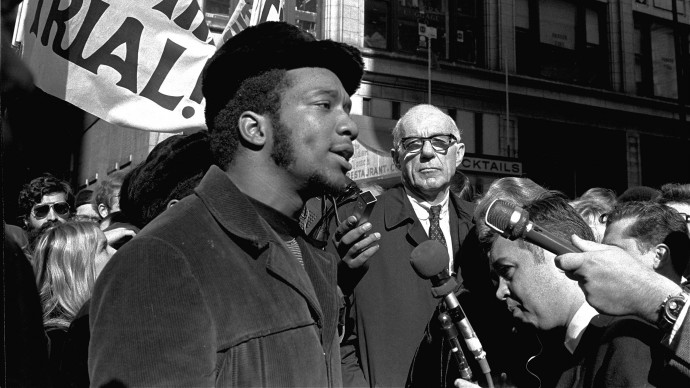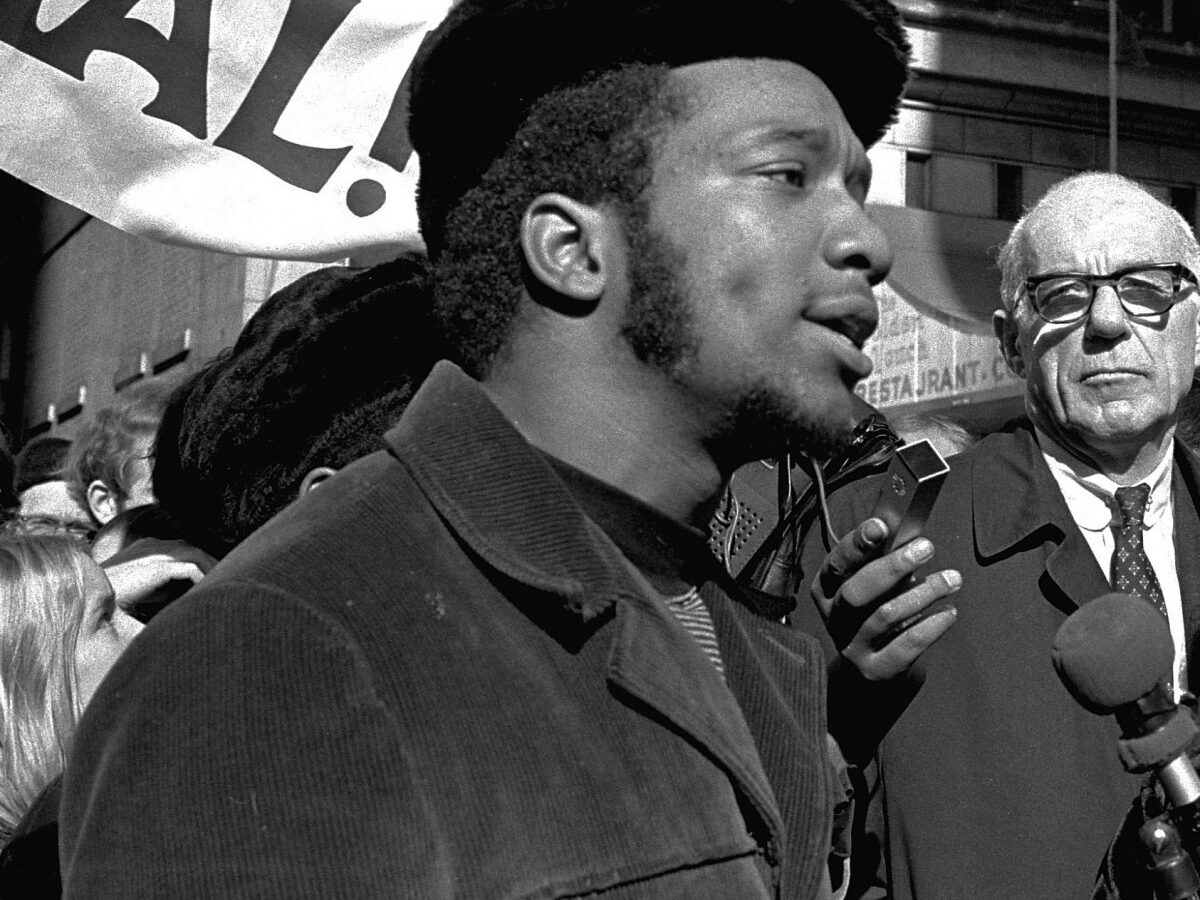
(MintPress) – Yesterday in 1969, the Federal Bureau of Investigation (FBI) and the Chicago Police Department assassinated Fred Hampton, a revolutionary Black Panther leader in what Dr. Noam Chomsky has called “the gravest domestic crime during the Nixon administration.”
Hampton’s murder came at the height of the Counter Intelligence Operations (COINTEL Pro) era of duplicitous government operations aimed at overthrowing “subversive” political movements in the U.S. In the wake of Hampton’s murder and the demise of the black power movement, state surveillance has shifted to more insidious forms, including, most notably, the proliferation of drone technology under the Obama administration. As drone technology develops, authorities can keep tabs on political movements and employ violence, unlawfully, to assassinate influential leaders without due process of law.
Fred Hampton
“We’re going to say this long after I’m locked up, after everyone is locked up. You can jail a revolutionary, but you can’t jail a revolution,” said Hampton in a public speech before his death.
Fred Hampton was one of the more charismatic leaders of the Black Panther Party in the late 1960s. His presence helped galvanize support for the movement and advanced the cause of African-American rights and social justice.
Hampton and the early Black Panther leadership helped create the Free Breakfast Program for children in underserved communities. At the height of the program, the Free Breakfast Program fed approximately 10,000 children across the U.S. in poor, underserved communities of color.
The party helped to open free health clinics and a bevy of free social programs aimed at helping communities forgotten or ignored by state and federal governments. “If it’s criminal to feed children and the hungry, if it’s criminal to start a program where the only prerequisite that people have to have to involve themselves in this program is to be hungry, then we are going to continue to be criminal,” Hampton said in a 1968 interview.
However, the work of the Black Panthers was coupled with a revolutionary orientation, promoting a shift away from capitalism and toward socialism as a means to create a new society based upon racial and economic equality.
In a sudden raid, the FBI and Chicago police stormed Hampton’s apartment on the morning of Dec. 4, killing the 21-year-old man in a hail of bullets as he slept. Initial police reports showed that the authorities exchanged fire with the Black Panther leader while trying to serve a routine warrant. However, later investigations showed the police attack to be an illegal assassination.
While the militant presence of armed Black Panthers’ people’s armies drew condemnation, the fundamental critiques of racial disparities and inequity drew significant support among disenfranchised communities of color and sympathetic progressive whites.
The Black Panther Party
The Black Panther Party grew out of the black power movement in the late 1960s. Founded in Oakland, Calif., the group had an avowedly Maoist-Socialist orientation calling for the abolition of capitalism.
Contrary to the tropes of the time, most of the Black Panther Party leadership did not express white hatred, but rather, a hatred for the institutional racism created by an inherently unjust economic system that stratified groups in America.
FBI Director J Edgar Hoover at one point labeled the Black Panther Party as “the greatest threat to the internal security of the country.”
“We are not a racist organization because we know that racism is an excuse used for capitalism and we know that racism is just a byproduct of capitalism,” said Hampton during a public speech.
Hampton continued, “Black people need some peace, White people need some peace. We’re going to have to fight, we’re going to have to struggle, we’re going to have to struggle relentlessly to bring about some peace because the people we’re asking for peace are a bunch of megalomanic, war-mongers.”
After the FBI jailed or killed most of the party leadership, the Black Panthers declined in influence significantly and exist only as a shell of its former organization. At its peak, the Black Panthers boasted 10,000 members. Its newspapers were circulated widely and were read by some 250,000 people on a regular basis.
Now, the New Black Panther Party (NBPP) carries the torch, but in name only. Founded in 1989, the NBPP claims a few thousand members although there are no official numbers regarding membership published. The group has become a radicalized fringe of what was once a viable social movement.
The NBPP merged at least partially with the Nation of Islam during the 1990s and has been since been branded a “hate group” by the Anti-Defamation League, the Southern Poverty Law Center and the U.S. Commission on Civil Rights.
Killing political opposition
The U.S. government’s effort to destroy political opposition at home and abroad has continued unabated since Hampton’s murder and the subsequent demise of the black power movement.
The use of drone surveillance activities has given the CIA and the U.S. military new methods of observation and the ability to immediately eliminate opposition through extrajudicial killing.
These programs have even been used against U.S. citizens thought to be involved in terrorist activities against the U.S. Last year in Yemen, three U.S. citizens were killed in a drone strike at an open air cafe.
The first legal challenge to these assassinations began in July, when the families of the three Americans killed by the drone strikes filed a suit against the secretary of defense and the director of the CIA.
The American Civil Liberties Union (ACLU) is assisting the families with their ongoing legal action, claiming that the U.S. murdered three of its own citizens without trial, denying them due process of law.
Two of the Americans killed, Anwar al-Aulaqi and Samir Khan, were both involved in jihadi networks, with the former being called “bin Laden of the Internet” for his radical sermons.
In a separate attack, Aulaqi’s 16-year-old son was killed in a drone strike targeting an open air restaurant in Yemen. The deceased’s grandfather, Nasser al-Aulaqi, is one of the plaintiffs in the legal action. Nasser al-Aulaqi commented on his grandson’s death in an interview last month saying, “I never expected, you know, that a small boy who was born in America, who was a citizen of America, would be killed by the United States government, his own government.”
Additionally, the National Defense Authorization Act (NDAA) Homeland Battlefield bill allows authorities to detain any U.S. citizen without charge for having “substantial ties” to terrorist organizations. This type of legislation empowers government surveillance at the cost of civil liberties and due process of law — creating a situation where U.S. citizens can be indefinitely detained without charge in penal colonies like Guantanamo Bay.


